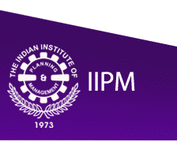Even with the best efforts, brands land up in situations which are not best for them. Airlines did not intend to be in the red. Political ideologies are not formed to be overthrown, movies are not made to fail at the box office, and iconic individuals don’t intent to fall from grace. Most of us believe that our brands are infallible, employee cynicism apart. Some brands tread a seemingly successful path yet fail in the marketplace. In the year 2010, it is estimated that over 67% of the products launched globally in five key industries – consumer electronics, non-durables, banking and IT have failed to achieve the estimated level of financial success.
How did this happen? The best of minds coupled with the greatest vintage of people, most effective tools and methodologies seem to fail. When movies expected to be blockbusters fail, everyone seems to ask – did the film-maker not see the obvious? In retrospect, everything is obvious and ‘should’ have been intuitive. Why was this not seen before the event occurred or a campaign launched?
Is there a risk mitigation plan which brands can formulate so that they do not paint a dirty picture in the future? Possibly. A study of successful as well as failed brands throws up some patterns that brands could identify and avoid.
Being too functional/ tactical: In an effort to up the ante on value delivery, brands can make the mistake of being too tactical or reactive. The messaging could almost be like that of a hammer, which says my brand can strike and strike very hard if you want, at anything. What is wrong with that? Are we not supposed to be selling a benefit anyway. True, but an over-repeated and mindless effort to drive home an attractive but narrow functionality can be counterproductive. Functionalities of a brand should go hand in hand with the emotional benefits it can offer. An emotional connect fortifies a long-term connection with customers. Not just that, but future roadmaps for the product are also established with an emotional connect, serving as a bond even when the current functionality is no more a differentiator. Compare Apple with other hardware brands. Most other brands focus on cost, technological superiority, while Apple focuses on design that dazzles customers. Therefore the market has segmented itself as Apple and Others. Does anyone check iPad 2’s specifications? No. Because in the customers’ minds it is above comparison and scrutiny, reflecting a strong bond of trust that the brand has built with the customers.
Keeping the brand caged up for too long: In a typical brand journey, there is a phase of maturity. At this stage, the brand seeks to extend, diversify into variants, acquire other brands etc. There are two crucial questions in the brand managers’ minds at this stage:
1.Should the brand seek further growth? 2.At what stage should the brand expand to seek new horizons?
These are tough ones to answer! Some brands seek to stay put, convinced that there is no need for the extra effort to grow or that any such attempt is inherently risky. This move might lock up the brand for a significantly longer period of time beyond what the conscience keepers of the brand envisaged. Consider the Indian Railways. For the last 20 years, the largest employer in the world has not expanded beyond being a brand which transports people and goods. Why can’t the Railways recast itself into a great services brand? The vacation and leisure market in India has expanded 17 times in the last 10 years. Why is Indian Railways not seeking to be the best holidays brand given it’s omnipresence across the country and access to all the tourism development departments? Guess the answer to this is that the brand managers of Indian Railway have caged up the brand and locked it into a corner by saying “we are Indian Railways and we will have metal coaches running on metal tracks.”
Trap of mundane products: Great brands grow by earning revenues and profits from newer products which take current footprints to newer opportunities. But some brands, very curiously, seem to prefer launching products in saturated markets. One obvious reason for this is that matured markets offer stability and predictability and the ‘guaranteed’ 3% growth. But this can affect the brand’s body language significantly. For instance, LG, a manufacturer of electronic consumer durables launched a series of products in the consumer goods market, while its competitor Samsung was working on innovating LCD TVs and next generation tablets. Why was LG trying to chase product lines which were facing saturations for more than two decades? Does LG have the brand equity in the Indian market to be able to successfully market these products? Not sure.
Not investing in innovation: This is linked to the pitfall mentioned above. When brands cannot or have not invested in innovation, they gravitate to playing the price game, constantly slashing the prices of their products. Discounts, freebies and constant price-led promotions only convey to the consumers – “I am cheap”. A case in point is the Indian mobile telephone market. While brands like Samsung and Nokia were investing in innovating on the product, most domestic brands were focusing on reducing the cost and thereby the price of their offerings. While the temptation to tap into the sub-Rs.3000 market is obvious, a point to ponder will be – where does the brand create a surplus to add new features, new designs? An enhanced feature today is a must-have tomorrow. Touch screen phones are typical examples of this.
Following competition: Industry benchmarking is good as long it helps contextualise business performance. But a feature by feature comparison and consequent ‘reverse’ engineering efforts, are nothing but blindly following the competition. Very rarely, can a brand exactly replicate what works for another brand. Each brand has its unique DNA which can rarely be copied. Secondly, even if this is achieved, customers rarely embrace followers. In the Indian IT industry, Infosys always positioned itself as an industry leader, pioneering path breaking corporate governance measures, unique employee engagement activities and purposeful PR. The clear advantage for Infosys was its ability to always command a price premium over the competition.
For more articles, Click on IIPM Article
Source : IIPM Editorial, 2013
An Initiative of IIPM, Malay Chaudhuri and Arindam chaudhuri (Renowned Management Guru and Economist).
For More IIPM Info, Visit below mentioned Links
SC slams AICTE's illicit control on MBA courses
MBA, MCA courses no longer under AICTE
2012 : DNA National B-School Survey 2012
Ranked 1st in International Exposure (ahead of all the IIMs)
Ranked 6th Overall
Zee Business Best B-School Survey 2012
Prof. Arindam Chaudhuri’s Session at IMA Indore
IIPM IN FINANCIAL TIMES, UK. FEATURE OF THE WEEK
IIPM strong hold on Placement : 10000 Students Placed in last 5 year
IIPM’s Management Consulting Arm-Planman Consulting
Professor Arindam Chaudhuri – A Man For The Society….
IIPM: Indian Institute of Planning and Management
IIPM makes business education truly global
Management Guru Arindam Chaudhuri
Rajita Chaudhuri-The New Age Woman
IIPM B-School Facebook Page
IIPM Global Exposure
IIPM Best B School India
IIPM B-School Detail
IIPM Links
IIPM : The B-School with a Human Face
-----------------------------------------------------------------------------------------------------------------


 RSS Feed
RSS Feed